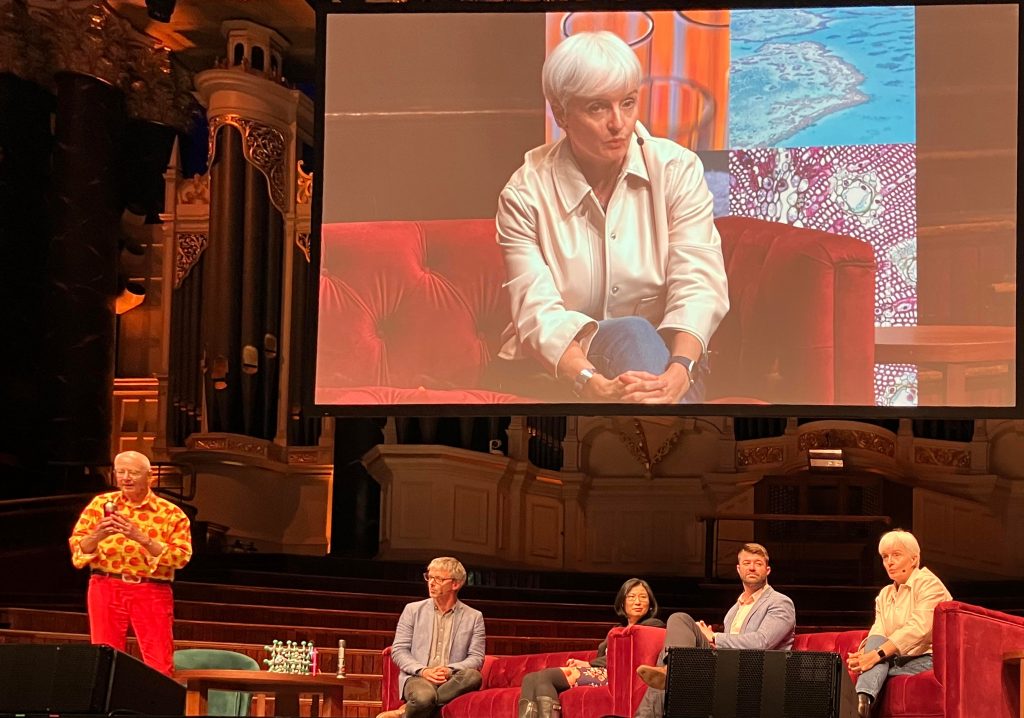Science week 2023 and beyond

What could be a better way to celebrate than sharing some time with Dr Karl Kruszelnicki and a small collection of friends from University of Sydney. The discussion was centered partly on the past, with a view to the future.
Dr Karl introduced what he considers the three most significant scientific developments of modern time; discovery of penicillin, the internet, and a machine intelligent world (otherwise known as Machine learning or Artificial Intelligence). Entertaining, as always, Dr Karl exemplifies the value of interpreting or communicating science in a way that anyone can be engaged and understand.
Dr Karl’s friends, describing their particular scientific focus shared their work and passion. Professor Anita Ho-Baillie spoke on research that dramatically increases the output of rooftop solar panels (from 20% up to potentially 60%) using a fun demonstration with audience participation. Professor Emma Johnston (featured in the image above) University of Sydney Deputy Vice Chancellor, discussed marine ecology research, focusing on experiences in the Antarctic, and threats to biodiversity from a warming planet. Associate Professor Michael Bowen revealed his teams neuroscience work to treat opioid addiction. And finally, Professor Geordie Williamson, who harness the power of AI through mathematics, AI’s current state and what the future may hold.
While that was inspiring, it was the audience questions, most of which were from teenagers or younger, that captured the imagination. The most poignant question was from someone described as a young Dr Karl, mainly because of his bright floral shirt, and I can only imagine he was 4 years old, was, “what will happen to the animals because of climate change”. Emma Johnston’s answer was prolific and should be a lightning rod for us all. In part the answer was something like this, many animals have nowhere to go to escape increasing heat, those on top of mountains cannot go higher, many can travel away from the equator but only so far, those who live in cold marine regions may be able to go deeper, and we may need to consider large scale translocations, such that entire ecoregions can survive.